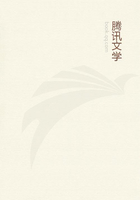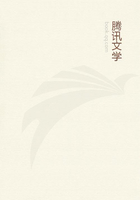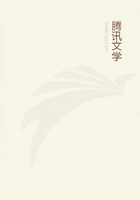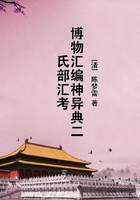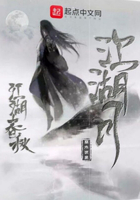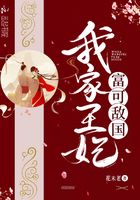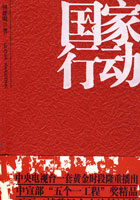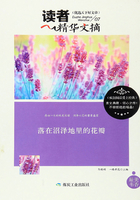So the goddess, dame Nature, Had made them open by measure And close; for were she never so glad, Not foolishly her looks were spread, Nor wildely, though that she play'd;But ever, methought, her eyen said:
"By God, my wrath is all forgiven."
And at the same time she liked to live so happily that dulness was afraid of her; she was neither too "sober" nor too glad; in short, no creature had over more measure in all things. Such was the lady whom the knight had won for himself, and whose virtues he cannot weary of rehearsing to himself or to a sympathising auditor.
"Sir!" quoth I, "where is she now?"
"Now?" quoth he, and stopped anon;
Therewith he waxed as dead as stone, And said: "Alas that I was bore!
That was the loss! and heretofore I told to thee what I had lost.
Bethink thee what I said. Thou know'st In sooth full little what thou meanest:
I have lost more than thou weenest.
God wot, alas! right that was she."
"Alas, sir, how? what may that be?
"She is dead." "Nay?" "Yes, by my truth!"
Is that your loss? by God, it is ruth."
And with that word, the hunt breaking up, the knight and the poet depart to a "long castle with white walls on a rich hill" (Richmond?), where a bell tolls and awakens the poet from his slumbers, to let him find himself lying in his bed, and the book with its legend of love and sleep resting in his hand. One hardly knows at whom more to wonder--whether at the distinguished French scholar who sees so many trees that he cannot see a forest, and who, not content with declaring the "Book of the Duchess," as a whole as well as in its details, a servile imitation of Machault, pronounces it at the same time one of Chaucer's feeblest productions; or at the equally eminent English scholar who, with a flippancy which for once ceases to be amusing, opines that Chaucer ought to "have felt ashamed of himself for this most lame and impotent conclusion" of a poem "full of beauties," and ought to have been "caned for it!" Not only was this "lame and impotent conclusion" imitated by Spenser in his lovely elegy, "Daphnaida" (I have been anticipated in pointing out this fact by the author of the biographical essay on "Spenser" in this series--an essay to which I cannot help taking this opportunity of offering a tribute of sincere admiration. It may not be an undesigned coincidence that the inconsolable widower of the "Daphnaida" is named Alcyon, while Chaucer's poem begins with a reference to the myth of Ceyx and Alcyone. Sir Arthur Gorges re-appears in Alcyon in "Colin Clout's come home again."); but it is the first passage in Chaucer's writings revealing, one would have thought unmistakeably, the dramatic power which was among his most characteristic gifts. The charm of this poem, notwithstanding all the artificialities with which it is overlaid, lies in its simplicity and truth to nature. A real human being is here brought before us instead of a vague abstraction; and the glow of life is on the page, though it has to tell of death and mourning. Chaucer is finding his strength by dipping into the true spring of poetic inspiration; and in his dreams he is awaking to the real capabilities of his genius. Though he is still uncertain of himself and dependent on others, it seems not too much to say that already in this "Book of the Duchess" he is in some measure an original poet.
How unconscious, at the same time, this waking must have been is manifest from what little is known concerning the course of both his personal and his literary life during the next few years. But there is a tide in the lives of poets, as in those of other men, on the use or neglect of which their future seems largely to depend. For more reasons than one Chaucer may have been rejoiced to be employed on the two missions abroad, which apparently formed his chief occupation during the years 1370-1373. In the first place, the love of books, which he so frequently confesses, must in him have been united to a love of seeing men and cities; few are observers of character without taking pleasure in observing it. Of his literary labours he probably took little thought during these years; although the visit which in the course of them he paid to Italy may be truly said to have constituted the turning-point in his literary life. No work of his can be ascribed to this period with certainty; none of importance has ever been ascribed to it.
On the latter of these missions Chaucer, who left England in the winter of 1372, visited Genoa and Florence. His object at the former city was to negotiate concerning the settlement of a Genoese mercantile factory in one of our ports, for in this century there already existed between Genoa and England a commercial intercourse, which is illustrated by the obvious etymology of the popular term "jane" occurring in Chaucer in the sense of any small coin. ("A jane" is in the "Clerk's Tale" said to be a sufficient value at which to estimate the "stormy people") It has been supposed that on this journey he met at Padua Petrarch, whose residence was near by at Arqua. The statement of the "Clerk" in the "Canterbury Tales" that he learnt the story of patient Griseldis "at Padua of a worthy clerk...now dead," who was called "Francis Petrarch, the laureate poet,"may of course merely imply that Chaucer borrowed the "Clerk's Tale" from Petrarch's Latin version of the original by Boccaccio. But the meeting which the expression suggests may have actually taken place, and may have been accompanied by the most suitable conversation which the imagination can supply; while, on the other hand, it is a conjecture unsupported by any evidence whatever, that a previous meeting between the pair had occurred at Milan in 1368, when Lionel Duke of Clarence was married to his second wife with great pomp in the presence of Petrarch and of Froissart.

